Almanac vs Notion
Learn more about your options and pick the best tool for your team.
Unsure whether to choose Almanac or Notion for your team? You've come to the right place.
If you’re trying to decide between Almanac and Notion, here’s a crucial update: Almanac will officially shut down at the end of January 2025. This means that current Almanac users will need to migrate to a new tool in the coming months, leaving them to decide where to take their data and workflows next.
For teams considering alternatives, Notion is a top contender. Known for its all-in-one functionality, Notion is widely used for wikis, task management, project planning, and much more. But is Notion the best fit for teams transitioning from Almanac?
In this article, we’ll break down the key differences between Almanac and Notion, highlight what made Almanac unique, and explore other alternatives that may meet your needs.
Almanac and Notion compared
Notion has dominated the productivity tool space since its launch in 2016, attracting millions of users with its flexibility and robust feature set. It's known for its ability to handle everything from simple notes to complex project management, making it a go-to tool for individuals and teams alike.
Almanac, on the other hand, was a younger product with a more niche focus. Instead of trying to be everything for everyone, Almanac concentrated on making document collaboration and workflows as smooth as possible. While this specialized approach resonated with some teams, it ultimately wasn’t enough to compete with larger, more versatile tools like Notion.
With Almanac’s imminent shutdown, its users must now weigh their options and decide if Notion or another alternative is the best fit.
Almanac
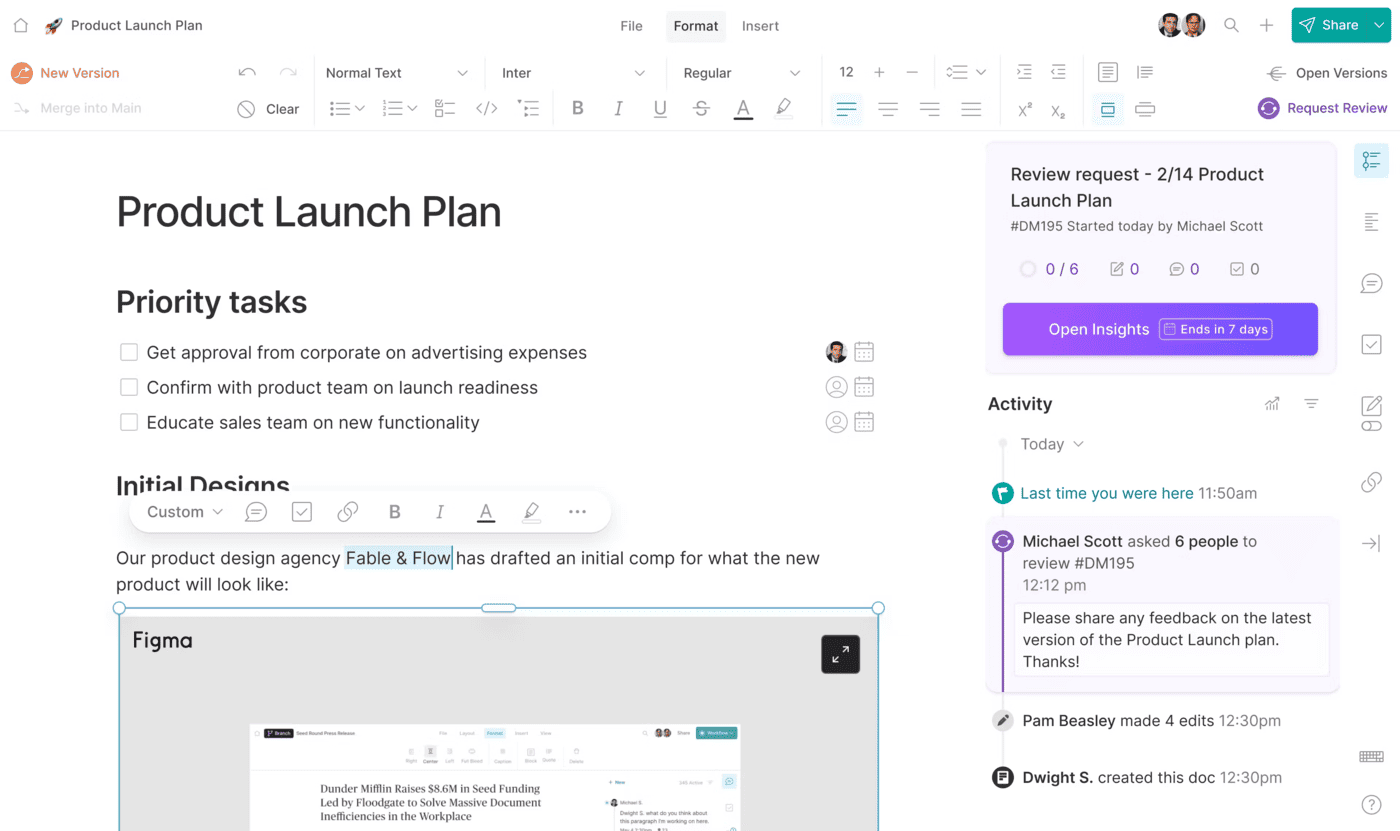
Pricing: Starting from $49 for 10 users
Rating on Capterra: 4.7/5
Almanac’s primary goal was to help teams streamline document collaboration. It was particularly well-suited for organizations with formal workflows, such as document approvals, version control, and structured knowledge-sharing practices. It offered a clean, straightforward interface, making it easy for teams to adopt without a steep learning curve.
Despite its strengths, Almanac struggled to gain significant traction in the competitive collaboration software market. With its limited user base and narrower focus, it ultimately couldn’t compete with tools offering broader functionality, like Notion.
For teams that relied on Almanac’s simplicity and workflow features, its shutdown may feel like a significant loss. Fortunately, there are alternatives that can help fill the gap.
What users said about Almanac:
"We didn't need the powerful database features from Notion but we did need the version control, access control and layer/merge features from Almanac."
Looking for more tools similar to Almanac? Check out this list of Almanac alternatives.
Notion
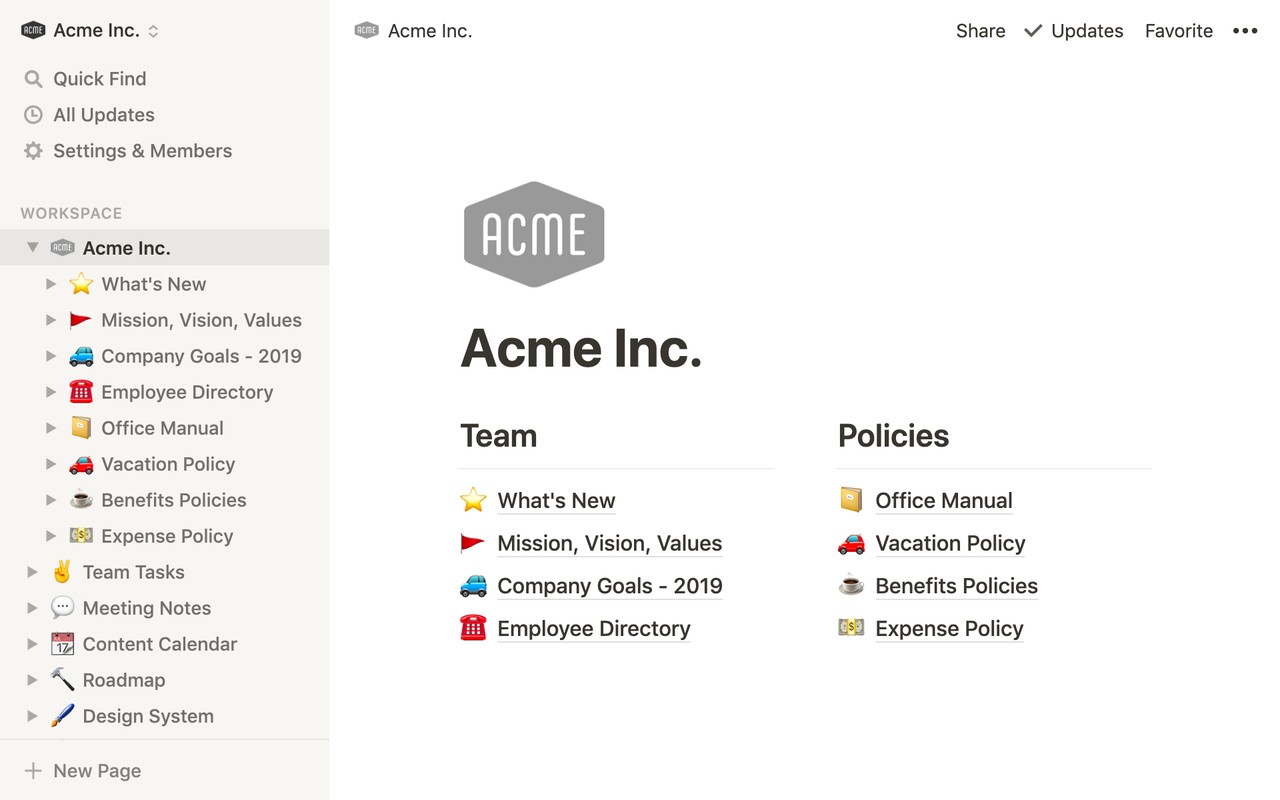
Pricing: Free, advanced features starting from $8/user/month
Rating on Capterra: 4.7/5
Notion takes a completely different approach than Almanac. Instead of focusing narrowly on document workflows, it offers a flexible all-in-one platform capable of supporting wikis, project management, task tracking, and much more. This versatility has made Notion a popular choice for teams of all sizes, as well as freelancers and individuals.
However, this flexibility comes at a cost: complexity. While Notion offers a vast array of features, its interface can feel overwhelming for new users. It requires time and effort to configure it to fit your team’s specific needs.
Why you might prefer Notion over Almanac:
Notion isn’t just for documentation — it can handle project management, task tracking, databases, and even serve as a lightweight CMS.
Nearly every aspect of Notion can be tailored to your needs, from page layouts to database structures.
Notion’s AI assistant can help automate tasks, generate content, and organize data more efficiently.
With millions of users, Notion has a robust community that provides templates, tutorials, and resources to help teams get started.
What users say about Notion:
"The best thing about Notion is its flexibility, that you can customize it to work as almost anything in your day to day, whether its note taking, documentation, knowledge storing or anything else."
Looking for more tools similar to Notion? Check out this list of Notion alternatives.
Other alternatives
While Notion is a compelling choice for many teams, it may feel overly complex for those who valued the simplicity of Almanac. If you're looking for an alternative that combines ease of use with robust collaboration features, consider exploring other tools such as Nuclino.
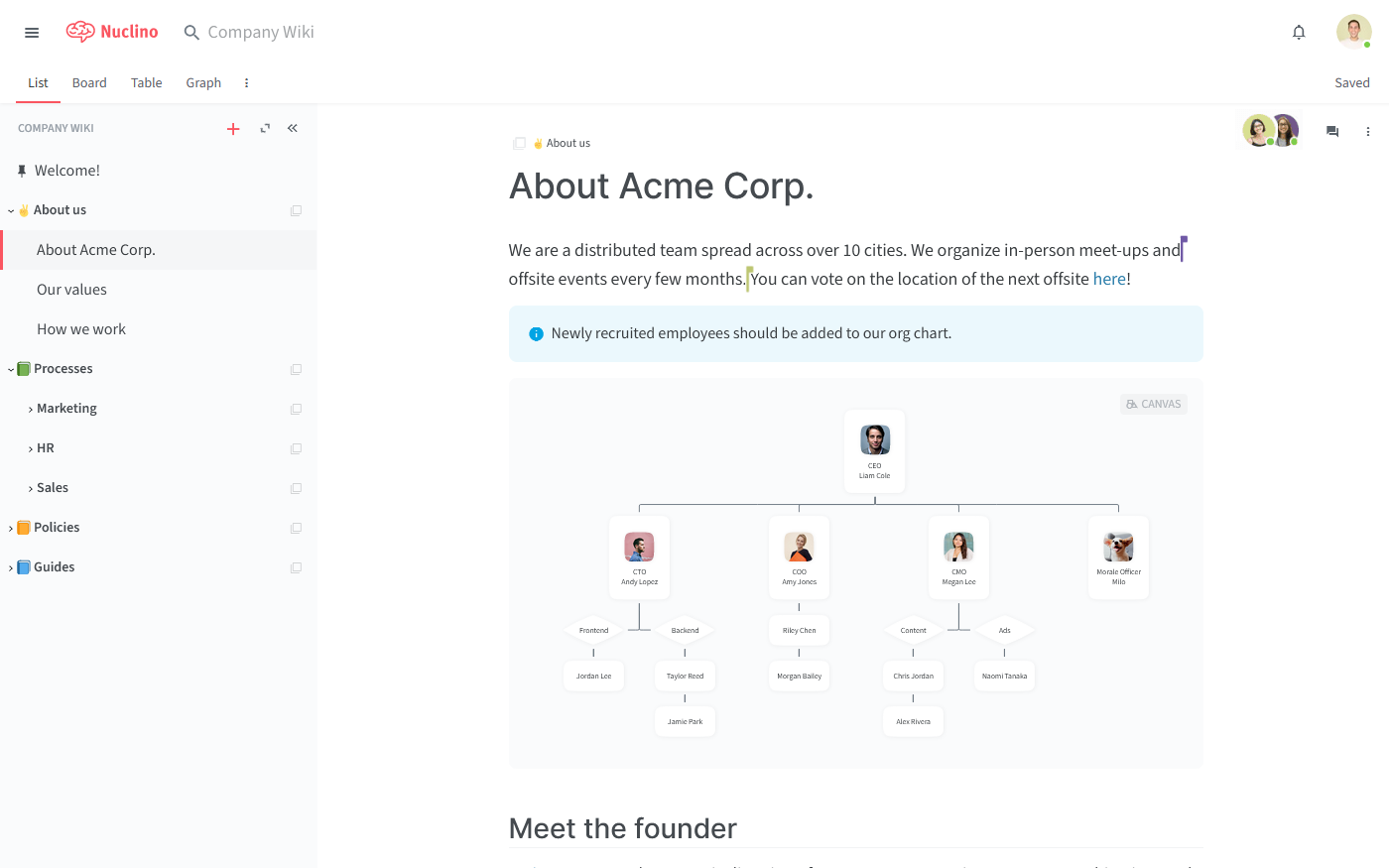
Similar to Notion, Nuclino offers a variety of flexible ways to structure information. You can create real-time collaborative documents and structure them visually using nested lists, Kanban boards, tables, and mindmap-style graphs. This versatile tool can be used for a variety of purposes, including company wikis, document collaboration, project management, sprint planning, and more.
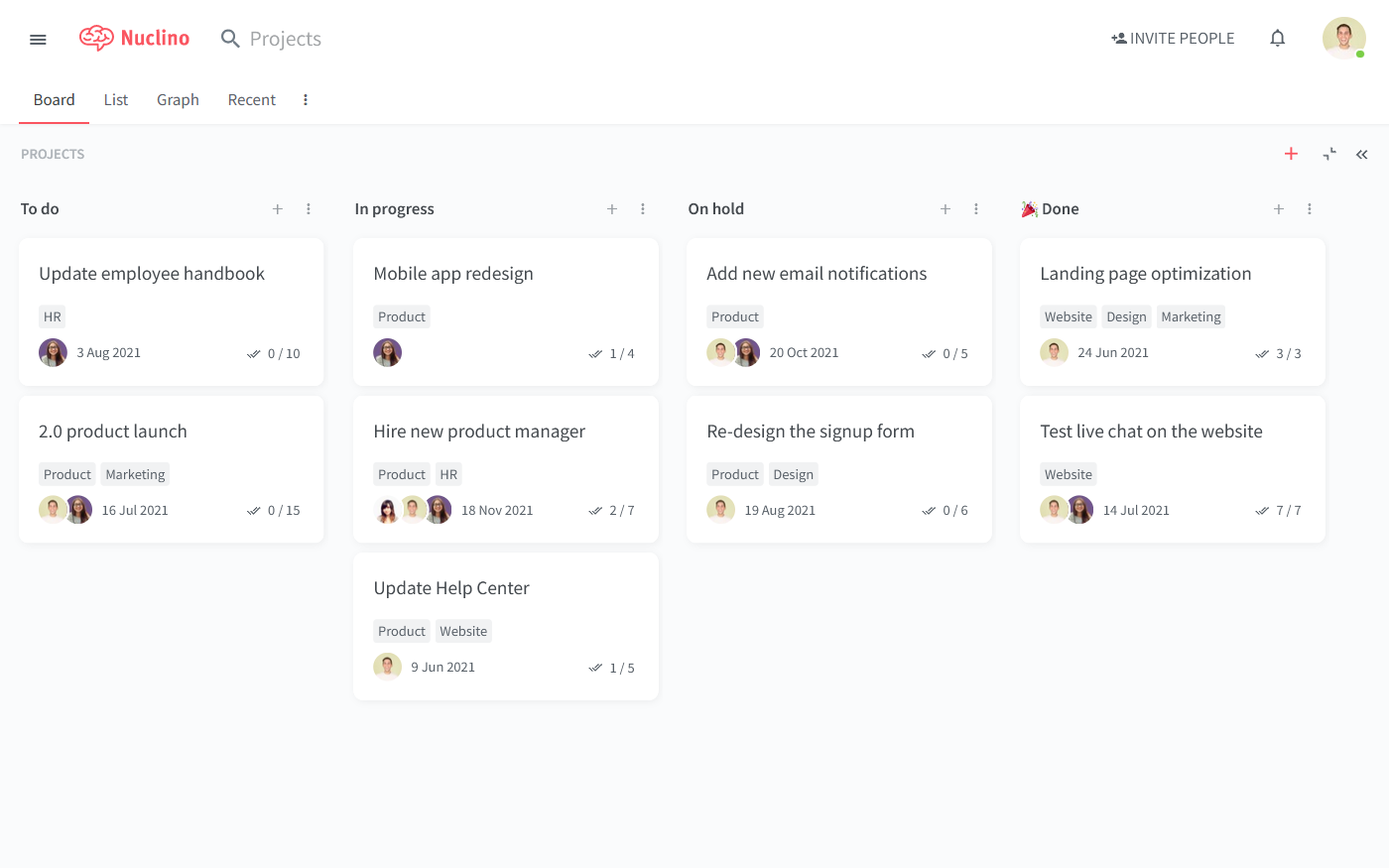
You can also turn any Nuclino workspace into a public website, like with Notion Sites. It will be accessible to anyone on the web and discoverable via search engines. It's perfect for help centers, user documentation, changelogs, and much more.
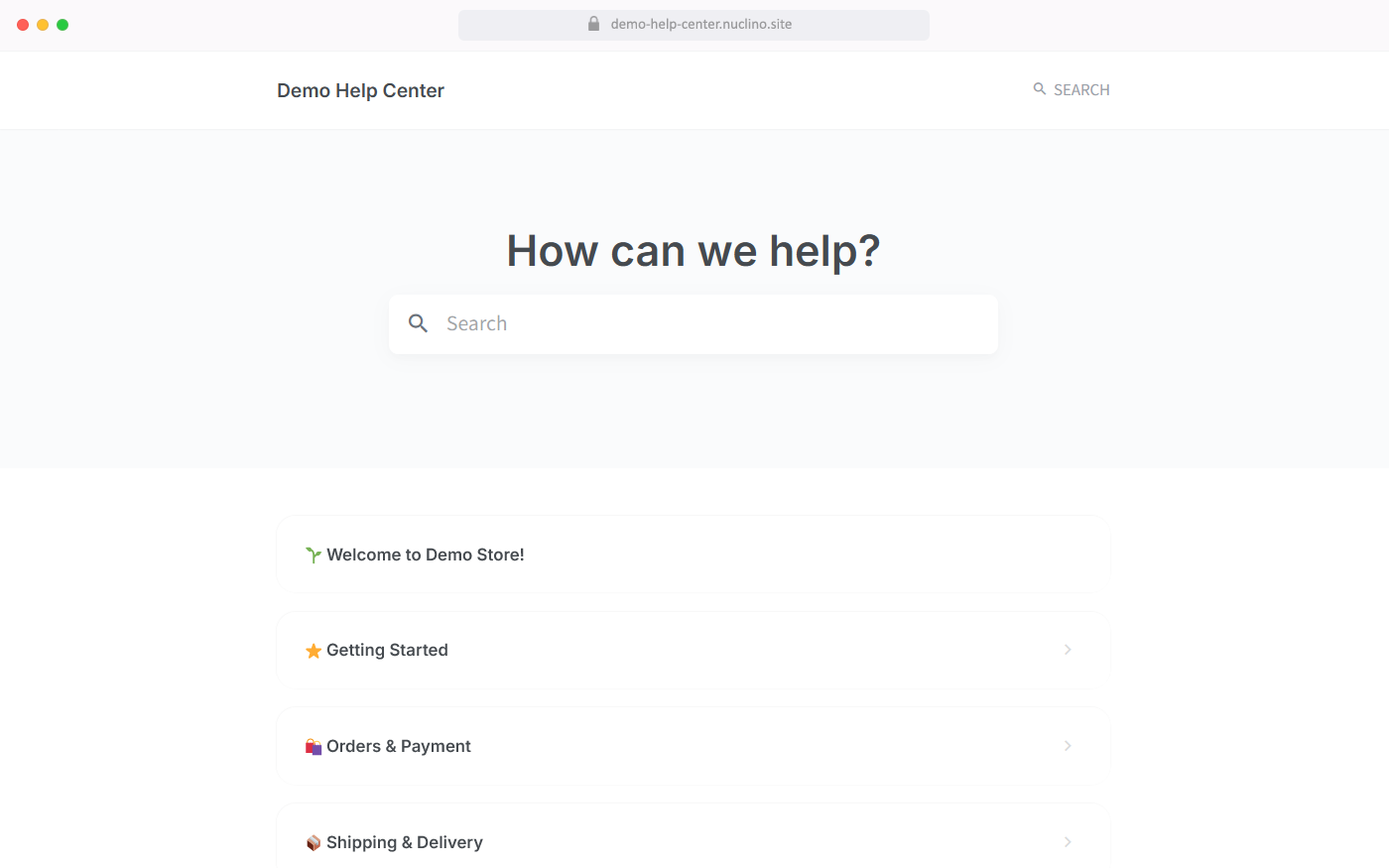
On the other hand, like Almanac, Nuclino is designed to be lightweight, intuitive, and focused on essentials. It avoids unnecessary complexity, offering a clean, uncluttered interface and fast performance for searching, editing, and collaboration.
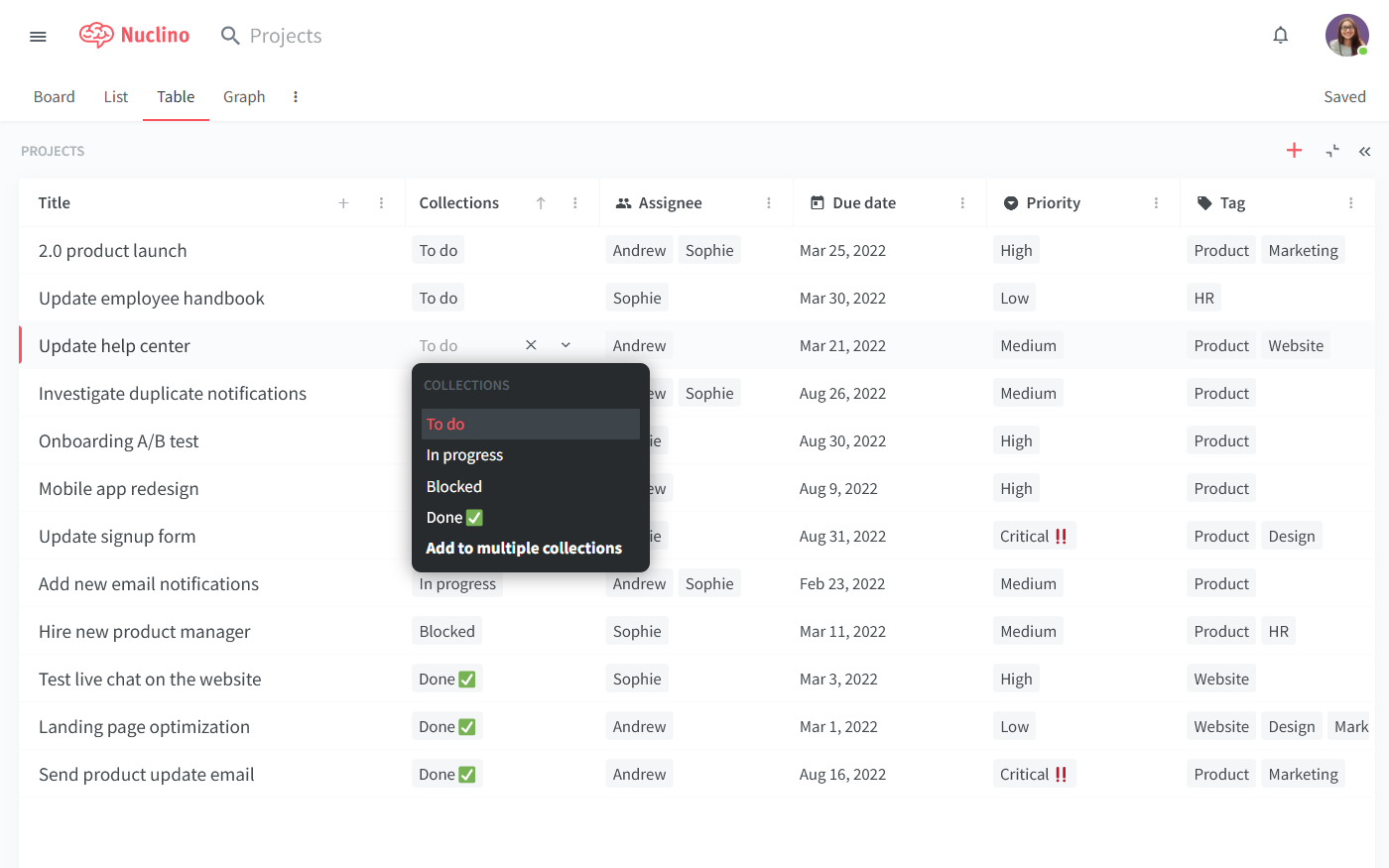
Learn more about how Nuclino compares to Notion: Nuclino vs Notion.
Almanac vs Notion: So which is better?
Almanac and Notion are two very different tools with their own distinct strengths and weaknesses. With Almanac shutting down in January 2025, it’s no longer a viable long-term option, and its users will need to transition to a new platform.
Notion may be the better choice if you’re looking for a versatile, all-in-one workspace capable of handling a wide range of use cases, from knowledge-sharing to project management. However, its complexity may feel overwhelming for teams that prefer simplicity.
On the other hand, if you want the best of both worlds and value both simplicity and flexibility, consider exploring other alternatives, such as Nuclino.
We hope this article has made your decision a little easier.
Ready to get started?
